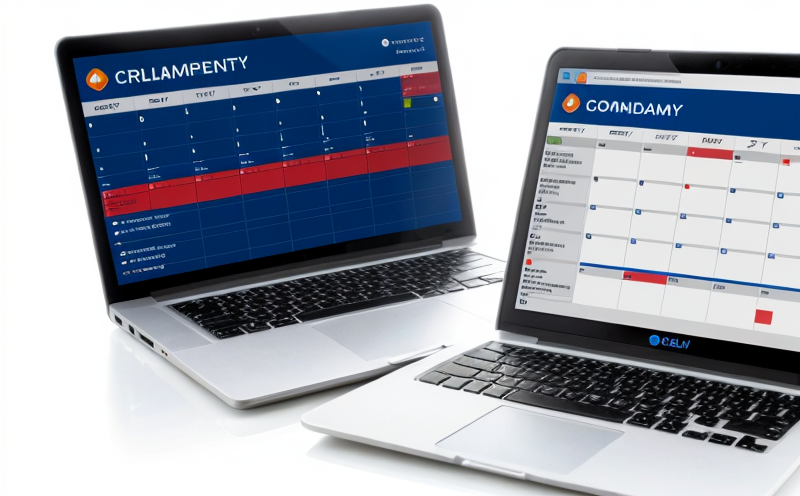
-
Construction and Engineering Compliance-
Construction Compliance in Project Planning-
Project Scheduling and Regulatory Compliance Management
We provide comprehensive solutions designed to help our clients mitigate risks, enhance performance, and excel in key areas such as quality, health & safety, environmental sustainability, and social responsibility.
Discover
For many years, our organization has been operating successfully, boasting modern laboratories that meet international standards. These laboratories are equipped with the latest technology devices and equipment, and we have built a strong team of experienced and trained personnel to operate them.
DiscoverWelcome to Eurolab, your partner in pioneering solutions that encompass every facet of life. We are committed to delivering comprehensive Assurance, Testing, Inspection, and Certification services, empowering our global clientele with the ultimate confidence in their products and processes.
Discover
-
Construction and Engineering Compliance-
Construction Compliance in Project Planning-
Project Scheduling and Regulatory Compliance ManagementProject Scheduling and Regulatory Compliance Management: A Comprehensive Approach to Ensuring Successful Projects
Project scheduling and regulatory compliance management are critical components of any projects success. With increasingly complex projects and stringent regulations, it has become essential for organizations to have a robust approach in place to manage these two aspects effectively. In this article, we will explore the importance of project scheduling and regulatory compliance management, their interconnection, and provide detailed explanations on how to implement these practices in your organization.
Project Scheduling:
Project scheduling involves planning, coordinating, and controlling the sequence of tasks required to complete a project. A well-planned schedule helps ensure that projects are completed on time, within budget, and to the desired quality standards. Effective project scheduling enables organizations to allocate resources efficiently, manage dependencies between tasks, and identify potential risks and opportunities.
The importance of project scheduling can be summarized as follows:
Project scheduling helps ensure timely completion of projects, resource allocation, effective communication among team members, enhanced decision-making through regular monitoring and control, and reduction of the risk of delays, cost overruns, and scope creep.
2. How can regulatory compliance management inform project planning and execution?
Regulatory compliance management can identify potential risks related to non-compliance, inform task sequencing, resource allocation, and risk management strategies.
3. What are some best practices for implementing effective project scheduling and regulatory compliance management?
Develop a robust project management framework that integrates both aspects; establish clear roles and responsibilities for project team members and stakeholders; conduct regular training and awareness programs on regulatory requirements and project scheduling techniques; use project management tools and software to facilitate collaboration, communication, and task management.
4. How can project scheduling be integrated with regulatory compliance management?
Task sequencing, resource allocation, and risk management strategies should take into account regulatory requirements and standards.
This comprehensive approach ensures that projects are completed on time, within budget, and to the desired quality standards while maintaining adherence to relevant laws, regulations, and industry best practices.

Environmental Impact Assessment
Environmental Impact Assessment: A Comprehensive Guide Environmental Impact Assessment (EIA) is a c...

NEBS and Telecommunication Standards
Network Equipment Building System (NEBS) and Telecommunication Standards The Network Equipment Bu...

Military Equipment Standards
Military Equipment Standards: Ensuring Effectiveness and Safety The use of military equipment is a ...

Industrial Equipment Certification
Industrial equipment certification is a critical process that ensures industrial equipment meets spe...

Healthcare and Medical Devices
The Evolution of Healthcare and Medical Devices: Trends, Innovations, and Challenges The healthcare...

Transportation and Logistics Certification
Transportation and Logistics Certification: A Comprehensive Guide The transportation and logistics ...

Energy and Sustainability Standards
In today’s rapidly evolving world, businesses face increasing pressure to meet global energy a...

IT and Data Center Certification
IT and Data Center Certification: Understanding the Importance and Benefits The field of Informatio...

MDR Testing and Compliance
MDR Testing and Compliance: A Comprehensive Guide The Medical Device Regulation (MDR) is a comprehe...

Automotive Compliance and Certification
Automotive Compliance and Certification: Ensuring Safety and Efficiency The automotive industry is ...

Food Safety and Testing
Food Safety and Testing: Ensuring the Quality of Our Food As consumers, we expect our food to be sa...

Lighting and Optical Device Testing
Lighting and Optical Device Testing: Ensuring Performance and Safety Lighting and optical devices a...

Fire Safety and Prevention Standards
Fire Safety and Prevention Standards: Protecting Lives and Property Fire safety and prevention stan...

Trade and Government Regulations
Trade and government regulations play a vital role in shaping the global economy. These regulations ...

Hospitality and Tourism Certification
Hospitality and Tourism Certification: Unlocking Opportunities in the Industry The hospitality and ...

Chemical Safety and Certification
Chemical safety and certification are critical in ensuring the safe management of products and proce...

Environmental Simulation Testing
Environmental Simulation Testing: A Comprehensive Guide In todays world, where technology is rapidl...

Electrical and Electromagnetic Testing
Electrical and Electromagnetic Testing: A Comprehensive Guide Introduction Electrical and electrom...

Renewable Energy Testing and Standards
Renewable Energy Testing and Standards: Ensuring a Sustainable Future The world is rapidly transiti...

Construction and Engineering Compliance
Construction and Engineering Compliance: Ensuring Safety, Quality, and Regulatory Adherence In the ...

Consumer Product Safety
Consumer Product Safety: Protecting Consumers from Harmful Products As a consumer, you have the rig...

Pharmaceutical Compliance
Pharmaceutical compliance refers to the adherence of pharmaceutical companies and organizations to l...

Pressure Vessels and Installations Testing
Pressure Vessels and Installations Testing Pressure vessels are a critical component of various ind...

Aviation and Aerospace Testing
Aviation and Aerospace Testing: Ensuring Safety and Efficiency The aviation and aerospace industr...

Electromechanical Safety Certification
Electromechanical Safety Certification: Ensuring Compliance and Protecting Lives In todays intercon...

Agricultural Equipment Certification
Agricultural equipment certification is a process that ensures agricultural machinery meets specific...

Cosmetic Product Testing
The Complex World of Cosmetic Product Testing The cosmetics industry is a multi-billion-dollar ma...

Product and Retail Standards
Product and Retail Standards: Ensuring Quality and Safety for Consumers In todays competitive marke...

Railway Industry Compliance
Railway Industry Compliance: Ensuring Safety and Efficiency The railway industry is a critical comp...

Battery Testing and Safety
Battery Testing and Safety: A Comprehensive Guide As technology continues to advance, battery-power...